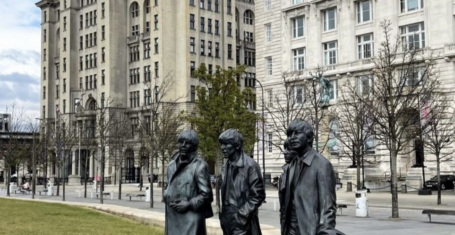
Tuition fees are going up but our campus isn’t getting better
Where are the lecture streams, Harry?
Unless you’ve been living under a rock in Sefton Park for the past few months, you might have noticed the government implementing plans to increase university tuition fees from £9,000 to £9,250 annually, starting in 2017 entry. Arguments against the rise have included the worry that the increase will make universities elitist institutions again, pushing out lower incomes families and filling our lecture theatres with wealth, not merit.
All decent points, but let’s get one thing straight – right now, we’re paying £9,000 a year and our university experience is less than perfect. If the prices are going up, Liverpool needs to get its act together and sort out it’s campus.
From the Roxby to the Duncan, the university’s teaching facilities are down right appalling. It’s not just graffitied desks and projection screens that won’t stay down: the size, layout and decor of most of our campus eyesores are bordering on ridiculous.
When students have to sit in an ‘overflow’ lecture theatre and listen to a recording, rather than the actual lecturer (because there’s not enough space in the original room) it does not justify tuition fees in the first place, never-mind actually increasing them. Or alternatively when you have to record the lecture on your phone because there’s no PowerPoint or any evidence of an attempt to record it for later streaming, it again does not scream £9,250’s worth of resources.
No handout, no PowerPoint, no hope
Lucy, a third year History and English student, said: “In my first year, they tried to teach the whole 1st year English department in one Rendall lecture theatre. Some of us had to share seats in the first lecture – it was hot, sweaty and uncomfortable. By the end of the year, no one ended up going to the lectures: it was just too much effort.”
If tuition fees are rising, can we get a guarantee that the university will provide more seats during the revision period? Can we assume that seminars of 10 or more won’t be shoved into a seven seater Cypress Building room? That we won’t have to take a second year history exam on a Duncan Building lecture theatre table that’s narrower than the A4 exam paper? Given that these 60s brutalist buildings haven’t been updated since the last tuition fee rise, the answer is probably no.
Yes, new buildings are being constructed on campus, like the Materials Innovation Factory, but who’s using them? How many students do they actually serve? And as much as forging the way in scientific progress is important, updating the current arts and humanities premises would make a £9,250 degree a little bit less ridiculous.
The Materials Innovation Factory
Remember the promise by Harry Anderson (former President of the Guild) that full streaming of lectures would take place for every subject? It hasn’t happened. We’re lucky to get a powerpoint on VITAL, let alone a full video.
When you look at it all like this, you have to ask, what are we actually paying for? When you take into perspective that the vice chancellor of our current university could pay off your student debt (if it’s a three year course) with one month’s wages, the rise in tuition fees just seems unjust.
It is not fair that the already exceedingly high tuition fees should be increased. The decision to go to university should not be determined by the negative economic factors, but because the growth of enthusiastic intellectual minds will be beneficial to the country as a whole. And when you get here, you should be getting bang for your buck, not dilapidated seminar rooms and overflow lecture theatres.
When asked for comment, a University of Liverpool spokesperson said: “We really appreciate our students taking the time to share their views with us. Student feedback, whether it be positive or negative, is crucial to our constant efforts to improve and provide the very best experience for all our students.
“There are a vast array of ways in which students can share information about their experience with us, whether it be through department, school or institutional surveys, in focus groups or directly via academic staff. Departments such as Computing Services and the Library also have local feedback mechanisms in place for students to use so that problems can be addressed quickly and directly.”
On November 19th Free education Liverpool, in association with the guild, have organised a coach to go down to London to represent Liverpool on the march. Go to http://www.liverpoolguild.org/events/nus-demo to find out more information.









































